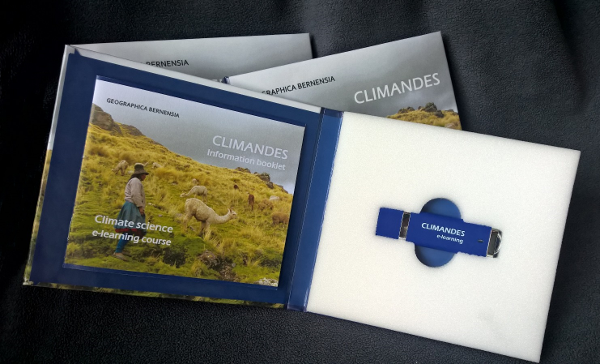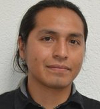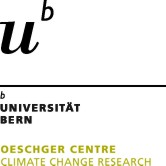December 2015
- Key factors for successful flood control
- OCCR plenary meeting on 4 February 2016
- Euro-Climhist 2.0 launched
- Climate Change Extremes and Adaptation Strategies
- New data storage system operational
- New joint SNF project with ETHZ on last glacial cycle
- CLIMANDES e-learning course released
- Markus Leuenberger promoted to Associate Professor
- New PhD theses funded by Bretscher-Fonds
- Young OCCR members investigate at Paris climate conference
- Glacial archaeology in the news
- Swiss Government Excellence/ fellowship
- Talk by Oxford professor Raymond Pierrehumbert
- Swiss Climate Summer School - register now
- Oeschger News to be published four times in 2016
- OCCR templates for use on the website
- Researchers who have recently joined the OCCR
- Researchers who have recently left the OCCR
- Recent journal publications by OCCR members
Key factors for successful flood control
What makes flood control projects successful? This question was amply discussed at a public event organised by the OCCR’s Mobiliar Lab for Natural Risks on 12 November 2015. At the well attended meeting a new study (pdf) by the Mobiliar Lab on key factors for successful flood control was presented. One of the key findings is that all stakeholders need to be involved as early as possible. In addition, popular acceptance of projects is more likely if recreation areas are created.
Read more
OCCR plenary meeting on 4 February 2016
The next OCCR plenary meeting will take place on 4 February 2016, 14.00 – 17.00. Please save the date. A detailed program will follow.
Euro-Climhist 2.0 launched
An extended version of the online database Euro-Climhist has been launched at a public event on 26 November 2016. This unique database which was built up through many years of work by the Oeschger Centre’s Climate and Environmental History group supports research and public participation in the analysis of natural hazards. It has more than 155'000 historical records on weather, climate and natural hazards in Switzerland dating back as far as the year 1500, and including daily weather observations as well as extreme events and long-term climatic development. Evidence on weather and climate is made accessible through a user-friendly database query.
Read more
Climate Change Extremes and Adaptation Strategies
At an event on 20 November 2016 OCCR researchers involved in the SNSF funded Sinergia project "Climate Change Extremes and Adaptation Strategies" considering Uncertainty and Federalism (CCAdapt) presented their ongoing work to an audience interested in climate adaptation. In CCAdapt, the OCCR groups for Hydrology, Environmental Policy Analysis and the Mobiliar Group for Climate Change Impact Research as well as research groups at the University of Basel and at the Ecole Polytechnique de Lausanne (EPFL) coordinate their efforts to find economically and politically viable concepts for protection against impacts from climate change. CCAdapt is based on a prediction of climate impacts on hydrological extremes in Switzerland. It develops both theory and application by taking into account political barriers to adaptation due to strategic interaction between different levels of Switzerland’s federalist structure.
New data storage system operational
Large and fast-access data storage capacity is key for Earth System analyses in a detailed spatial and temporal setting. As noted in the previous newsletter, the Oeschger Centre secured funding to expand its data storage facilities. As of now, the new data storage system with a capacity of 2 Petabytes is in use. It was inaugurated by the users on 3 December 2015. Several Oeschger Centre modelling groups (Climatology, Earth System Modeling – Bio-Geo-Chemical Cycles, Mobiliar Group for Climate Change Impact Research, Earth System Modeling – Atmosphere Ocean Dynamics) join forces to host their data sets on a common infrastructure. Data sets stored will include results from Earth System Models, Regional Climate Models, climate reanalysis systems, and observational data sets. The system will enable the Oeschger Centre to remain at the forefront in climate and Earth System modelling and to address a wide range of social important scientific problems related to climate variability, extreme events, or biogeochemical processes in a warming world.
New joint SNF project with ETHZ on last glacial cycle
During the Last Glacial Maximum (LGM, about 20’000 years BP), most of the Alps and large parts of the alpine forelands were covered with ice. Still, the ice flow during the LGM over the Alps is not fully understood as only geomorphological findings witness how the ice flowed from the highest areas to the lowlands. A new project called "Modelling the ice flow in the western Alps during the last glacial cycle" aims at providing a better understanding of this phenomenon. In this collaborative effort with colleagues at ETHZ, the OCCR’s Earth System Modeling – Atmosphere Ocean Dynamics group (Christoph Raible) will provide the meteorological forcing for ice flow models during the LGM using a regional downscaling approach. Thereby new insights on the hydrological cycle during the LGM will be obtained in an unprecedented, high resolution. The project will start in 2016.
CLIMANDES e-learning course released
Over the past three years, members of the OCCR’s Climatology group have developed a climate science e-learning course for the CLIMANDES project. CLIMANDES is a pilot project with collaboration between Peruvian and Swiss government, research, and education institutions. The aim of this e-learning material is to strengthen education in climate sciences at higher education and professional levels. The course presents a broad spectrum of topics in climate science, including an introduction to climatology, atmospheric and ocean circulation, climate forcings, climate observations and data, working with data products, and climate models. The material is based on the Large Scale Climate Variability course taught by Stefan Brönnimann at the University of Bern. A printed version oft the course was recently published by Geographica Bernensia. An online version is hosted on servers at the Peruvian Servicio Nacional de Meteorología e Hidrología (SENAMHI). The course is also available on USB sticks, and is currently distributed to regional training centres around the world by the WMO.

Markus Leuenberger promoted to Associate Professor
Markus Leuenberger, PI of the OCCR’s Environmental Isotopes and Gases group, has been promoted to Associate Professor (AOP). In addition, he is the director of the International Foundation High Altitude Research Stations Jungfraujoch and Gornergrat. The foundation is dedicated to providing the infrastructure and support for scientific research that must be carried out at an altitude of 3000 - 3500 meters above sea level or that requires a high-alpine climate and environment. The Research Station and Sphinx Laboratory at Jungfraujoch, together with the two astronomical observatories, Gornergrat South and Gornergrat North, are run for this purpose. Scientists from universities, schools of technology, and research institutes of the member countries (Belgium, Germany, U.K., Austria, and Switzerland) can carry out research in the laboratories and observatories provided by the foundation whose offices are integrated in the University of Bern.
New PhD theses funded by Bretscher-Fonds
The OCCR’s Alfred Bretscher Fund for Climate and Air Pollution Research is funding two new PhD theses. The fellowships will allow research on sustainable water management and nitrogen isotopes in Antarctic ice. The first project is on “Mehrzweckspeicher als Schlüssel für eine nachhaltige Wasserbewirtschaftung in der Schweiz“. It is jointly supervised by the Hydrology group (PI Rolf Weingartner) and the Environmental and Climate Economics group (PI Ralph Winkler). The second project is called “AeroTope: Stickstoffisotope von NH4+ -Aerosol in antarktischem Eis – Entwicklung eines innovativen Proxies der biologischen Aktivität/Eisendüngung im Südozean“. It is jointly supervised by the Past Climate and Biogeochemical Studies on Ice Cores group (PI Hubertus Fischer), the Paleoceanography and marine biogeochemistry group (PI Sam Jaccard) and the Earth System Modeling – Bio-Geo-Chemical Cycles group (PI Fortunat Joos).
Young OCCR members investigate at Paris climate conference
A group of Master students of the OCCR’s Graduate School of Climate Sciences has initiated a research project on how to best communicate scientific results. Prithvi Naik, Alden Ackerman, Amanda Lebic and Simon Steffen are eager to investigate the knowledge and communication gaps which separate the scientific community and the general public. At COP 21, they interviewed scientists, policy makers or their staffers, media affiliates, and members of the general public with regards to their understanding and perceptions of climate change. They now plan on making a documentary which will address the issues of transparency and how the results of climate scientists can be clearly relayed to the general public. The goal of the project is to determine the major roadblocks that prevent the general public from fully understanding the science presented by the experts.
Glacial archaeology in the news
OCCR adjunct researcher Albert Hafner (Institute of Archaeological Science) was featured in a program realised by the German radio station SWR. The feature highlighted glacial archaeology on the Schnidejoch and was part of a series in view of COP21. You can download a mp3 file of the program or view a multi media story on Albert Hafners research on the Schnidejoch.
Swiss Government Excellence/ fellowship
Kristy Barnes received a Swiss Government Excellence / Fulbright fellowship to visit the Aquatic Palaeoecology group and the University of Bern. She intends to study palaeoecological methods for reconstructing past temperature change based on lake sediment records. Kristy's work will mainly focus on analysing fossil chironomids in the sediments of two mountain lakes in the Swiss Alps in order to reconstruct centennial-scale summer temperature changes during the Holocene. Kristy studied Environmental Geoscience at Boston College, USA.
Talk by Oxford professor Raymond Pierrehumbert
Raymond Pierrehumbert holds the Halley Professorship of Physics at the University of Oxford. He is the author of Principles of Planetary Climate, a physical introduction to present and past climate of Earth and (extra-)solar planets. On 10 February 2016, he will give two talks upon joint invitation by the Oeschger Centre and the Center for Space and Habitability. Raymond Pierrehumberts climate science talk at 14.00 is entitled „Climate Impact of Beef Production: an Analysis without Global Warming Potentials”, his exoplanetary science talk at 17.00 is entitled „When the Sky Falls: General Circulation of Atmospheres with a Non-Dilute Condensible“. Raymond Pierrehumbert speaks in room 99 of the ExWi building, Sidlerstrasse 5.
Swiss Climate Summer School - register now
The 15th International Swiss Climate Summer School will take place on 28 August - 2 September 2016 in Grindelwald. Its focus is on the theme "Climate Risks - Coping with Uncertainty". Please don’t forget to register until 20 January 2016 at the latest.
Oeschger News to be published four times in 2016
The Oeschger Center’s internal newsletter, The Oeschger News will be published four times a year in spring, summer, autumn and winter as of now. The deadlines for contributions are: 21 March, 20 June, 19 September and 12 December 2016.
OCCR templates for use on the website
A variety of templates for presentation and printed matter with the corporate identity of the Oeschger Center are available from the new Oeschger Center website. A LaTex screen template has just been added. You are kindly asked to use these templates whenever you are representing the OCCR and its Graduate School.
Researchers who have recently joined the OCCR:
 |
Bernhard Bereiter is a new PostDoc with the Past Climate and Biogeochemical Studies on Ice Cores group. He did his PhD thesis on “Atmospheric CO2 reconstructions using polar ice cores: development of a new dry extraction device and insights from highly resolved records” at the University of Bern and then worked as a PostDoc at the Scripps Institution of Oceanography University of California in San Diego. He now works on the development of quantum cascade laser within the “deepSLice” project. |
 |
Moritz Köster is a new PhD with the Soil Science group. He obtained a MSc in BioGeoSciences at the University of Koblenz-Landau and is working on a thesis entitled “Carbon stabilization and inorganic nitrogen retention in agricultural and temperate rainforest soils of Chile“. |
 |
Angélique Hameau, who gained her MSc in Earth Sciences at the University of Toulouse, is now a PhD with the Earth System Modeling – Bio-Geo-Chemical Cycles group. Her thesis project is on “Modelling carbon cycle variability and the stable carbon isotope 13C in the Community Earth System Model“. |
 |
Tilman de la Haye is a new PhD with the Soil Science group. He obtained a MSc in BioGeoSciences at the University of Koblenz-Landau and is working on „The topic of Tibetan Plateau: Formation - Climate - Ecosystems (TiP) Past and present human impact on Kobresia pastural ecosystems as deduced from soil organic matter studies“. |
 |
Jennifer Herschbach started her PhD with the Soil Science group. She did a MSc in BioGeoSciences at the University of Koblenz, working on the assessment of microbial utilization of free versus sorbed Alanine by using position-specific 13C labeling and 13C-PLFA analysis. Her current research focus is on developing methods for reconstructing floodplain ecosystems by using geochemical biomarkers. |
 |
Lars Mächler is a new PostDoc with the Past Climate and Biogeochemical Studies on Ice Cores group. He did his PhD at the Federal institute of aquatic science (Eawag) and ETHZ. His PhD work focused on the development and testing of a new stand-alone instrumental field-method based on a membrane inlet mass spectrometer for measuring dissolved (noble) gas concentrations in groundwater. He then worked on time of flight mass spectrometry as a PostDoc at the University of Auckland. |
 |
Marcelo Zamuriano started his PhD project with the Climatology group. He did a MSc in Physics at the University of Geneva. He writes a thesis entitled „Evolution of Atmospheric Circulation Patterns and weather extreme events in the central region of South America within a Climate Change context“. |
A warm welcome to all of you!
Researchers who have recently left the OCCR:
Federico Cossu, who was a PhD at the Atmospheric Radiometry and Processes group.
Simon Schüpbach, who was a PostDoc at the Past Climate and Biogeochemical Studies on Ice Cores group. He is now with Swiss federal railways SBB.
Jörg Sintermann, who was a PostDoc at the Air Pollution/Climate group. He has joined Forest Soils and Biogeochemistry unit at the Swiss Federal Institute for Forest, Snow and Landscape Research WSL.
Thomas Kellerhals, who was a PostDoc Past Climate and Biogeochemical Studies on Ice Cores group.
All the best for your future career!
